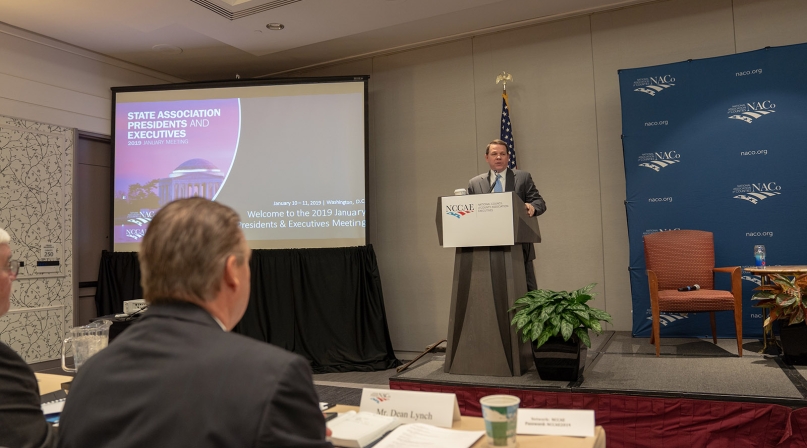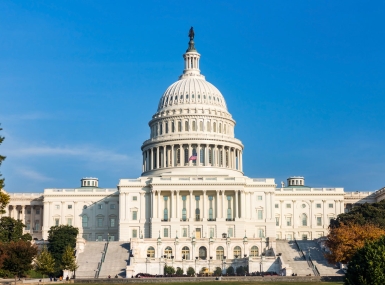Three-way focus may advance infrastructure bill

Key Takeaways
The chance for a bipartisan infrastructure package looks to be one of the “bright spots” of the new divided Congress, according to the ranking Republican on the House Transportation and Infrastructure Committee. He went as far as to say the goal was to have a plan done in six months.
“It’s one of those things that everybody believes the government should do and should do well,” Rep. Sam Graves (R-Mo.) told the National Council of County Association Executives Jan. 10, during its winter meeting in Washington, D.C.
“The chances this gets done? I actually think they’re pretty good,” he said. “Our side wants to get something done on infrastructure, their side wants to get something done and the president wants to get something done. I think this is the one area that we might be able to come together and craft a good compromise, a good proposal.”
The question, as always, remains how to fund such a package and replenish the highway trust fund. Graves favors using vehicle miles traveled, though not putting off payment until the end of the year. Chairman Rep. Peter DeFazio (D-Ore.) reportedly wants to index the gas tax, allowing for inflation adjustments.
“I’d like to do something different,” he said. “We don’t like the idea of a carbon tax at all… I’m not a fan of tolling.”
Graves said the overall spending on the bill could range between half of $1 trillion and $1.5 trillion, but acknowledged that the process was still in its infancy while congressional committee assignments were being decided.
He was excited to note that his committee would be growing. “Transportation has traditionally been the largest committee in the House, and we’re working back toward that under the Democrat Party, which I think is a good thing….after dropping six years ago,” he said. Specifics from the White House about President Trump’s wishes for an infrastructure bill have been scant, but Graves said there was some movement away from Trump’s earlier stated preference for heavy use of public-private partnerships.
We initially heard a lot about P3s but they create some problems in some of our states simply because there isn’t P3 authority, so the president has backed off, he noted.
Whatever bipartisan fever Graves sees working in infrastructure’s favor won’t last long, though, which will motivate both parties to work efficiently to get a deal done within the year before the reality of the looming 2020 election quashes deal-making across the partisan aisle.
“It’s going to have to be done this year because nobody believes we’ll be able to get anything done in an election year with a split Congress,” he said. “Both sides aren’t going to let the other body have something.”

Attachments
Related News

Federal district court issues ruling preventing the federal government from imposing immigration compliance mandates on grant recipients
On November 4, a federal judge in Rhode Island ruled that the U.S. Department of Transportation cannot condition federal grant funding on a recipient’s cooperation with federal immigration enforcement efforts.

U.S. House of Representatives passes SPEED Act and other permitting reform bills
On December 18, the U.S. House of Representatives passed the SPEED Act (H.R. 4776). The SPEED Act would strengthen county involvement in decision-making and make needed commonsense reforms to the federal environmental review process.

Counties and Railroads: Shared Priorities for the Next Surface Transportation Bill
County leaders from across the country have a vital opportunity to ensure their infrastructure priorities are front and center.
